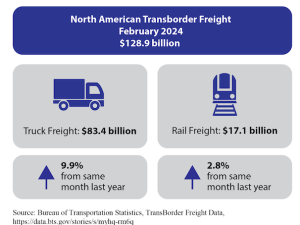The greenhouse-gas emissions rules - designed to fit with measures already set in the United States - will come into effect starting with the 2014 model year. They will apply to full-size pickups, heavy trucks and buses as well as to cement, garbage and dump trucks.
"The new standards are expected to reduce emissions from 2018 heavy duty vehicles by up to 23 percent from those sold in 2010," Environment Minister Peter Kent said in a speech announcing the rules.
"We expect this to translate into total greenhouse gas emissions reductions of about three megatons annually in 2020 - equivalent to removing about 650,000 personal vehicles from the road," he said.
The right-of-center Conservative government said in May 2010 it would produce new emissions standards for heavy duty vehicles within months but failed to do so.
Last August the Obama administration in the United States unveiled its own similar measures.
"Since the transportation sector makes up nearly one-quarter of all emissions, any climate change strategy must take a hard look at what happens on our highways," Kent said.
Canada - a major energy producer that abandoned the Kyoto protocol on climate change last year - wants to cut overall greenhouse gas emissions by 17 percent from 2005 levels by 2020.
Environmentalists say this will be almost impossible, given rapid expansion of the country's oil and gas industry.
"The projected growth in emissions from oil and gas production will render the investment by the trucking industry meaningless," said John Bennett of the Sierra Club Canada.
Output from the crude-rich tar sands of northern Alberta alone is expected to double by 2021. Extracting oil from the sands is particularly energy-intensive.
Bennett called for a comprehensive climate plan that includes a cap on all industrial emissions, an idea that does not appear to excite the government. Kent stressed that Ottawa's main priority is the economy.
Keith Stewart of Greenpeace said Canada and the United States have already introduced coordinated measures designed to make light vehicles more efficient.
"No longer pushing the envelope on environmental policies, we are now being dragged along behind the United States, copying their policies where we really don't have a choice," he said, noting the highly integrated North American transport market.
Kent said new heavy-duty vehicles would be able "to use features like fuel-efficient engines, aerodynamic cabs and idle-reduction technologies that are available right off the shelf."
Makers of trucks, parts and engines include Germany's Daimler AG, Sweden's Volvo AB and Scania AB, Paccar Inc, Navistar International Corp , Chrysler, General Motors and Cummins Inc. (Reuters)







